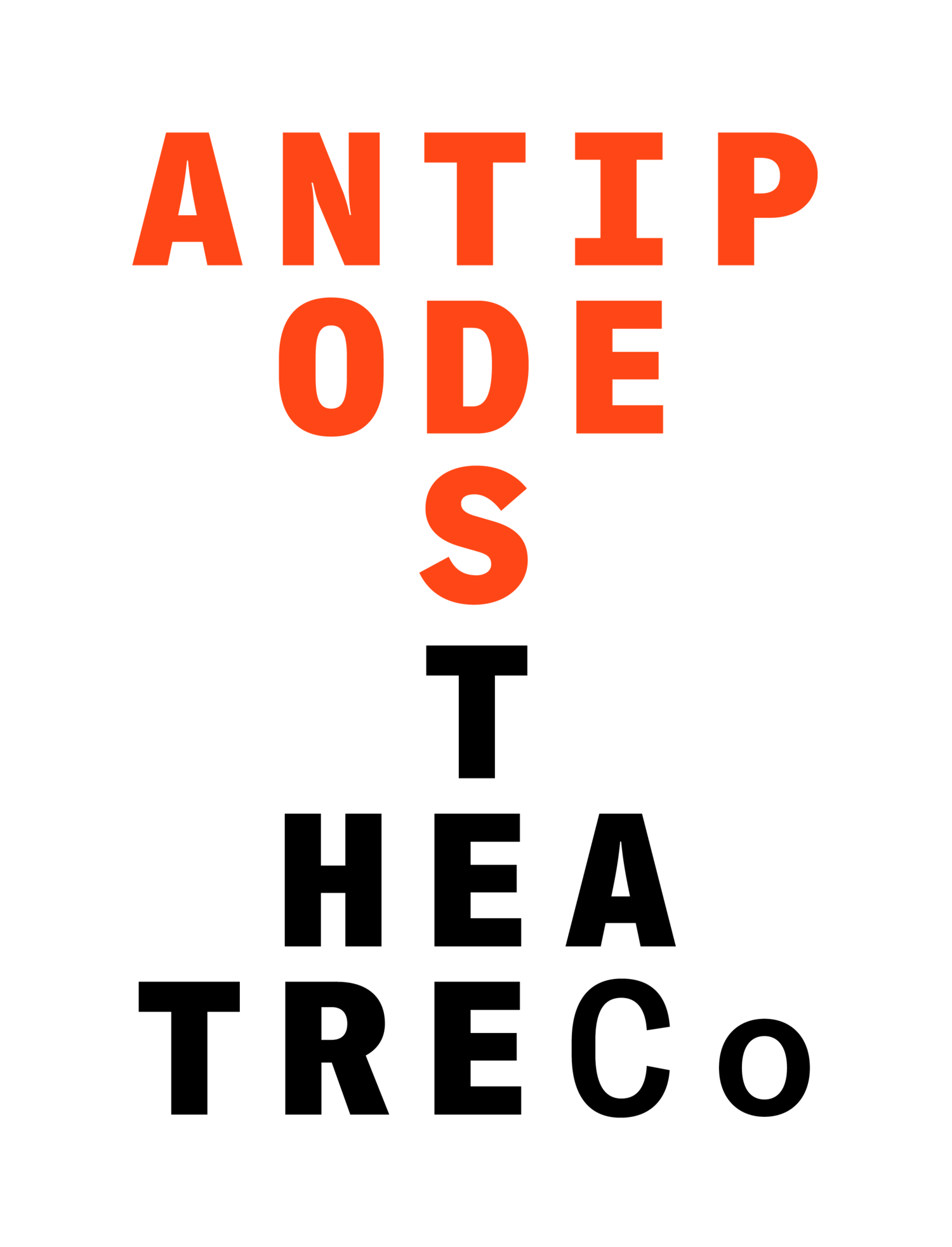
DROP-IN WORKSHOPS
with Margot Fenley
Antipodes HQ, South Melbourne
Thursdays in April & May 2:30pm - 4:30pm
Sundays in April 4:00pm - 6:00pm
$25 waged, $15 unwaged

MAY 2024
Psychological Gesture: Michael Chekhov Technique
Focusing on this embodied approach to text and subtext. Over the month, we’ll explore all the key archetypal gestures, and you’ll apply them to your own choice of text. Psychological gesture can also be used to explore and embody a character’s super-objective, offering a quick and much safer way to step into character and out again.
Simple to learn, deep in application, and open to nuance and specificity, psychological gesture is a golden practice that can be returned to again and again, and that you can tailor to your personal practice.
The best-known of Michael Chekhov’s tools, psychological gesture offers the actor a means to embody the wants, needs and desires of a character in a scene, or their life history. Whichever way you work, psychological gesture offers freedom from ‘remembering’ analytical choices, so you can be alive and responsive in the moment.

About Our drop-in workshop series:
Antipodes Theatre Company is thrilled to partner with Margot Fenley on this series of drop-in workshops, which started in February of this year. These weekly workshops are a space to be reminded of your creative ability, to pick up new practices or play with old ones, and to regularly be in the studio with no other agenda but to continually develop your artistry and build artistic community.
“I believe the greatest joy in being an actor is recognising that we can always find more play, more creativity, more depth and more range in our work, whether we’re re-exploring aspects of process work we already know, or expanding our skillset.” - Margot Fenley
Each week will begin with practices you will come to know, no matter your background, and then expand to the exploration of something new. The work will be physical but not physically demanding.
We appreciate that joining a workshop can be scary, particularly for those who’ve historically been excluded from classes or formal training, for those with social anxiety, or for myriad other reasons. We recognise that sometimes the biggest thing you might be able to bring some weeks is the willingness to turn up. For this reason, you will always have the option to step in and out of exercises and to work solo within the group, if needed. Although coming to each workshop will build your practice, these are drop-in classes, so you needn’t worry about missing one week (or several) and then rejoining. You’ll always be welcome!
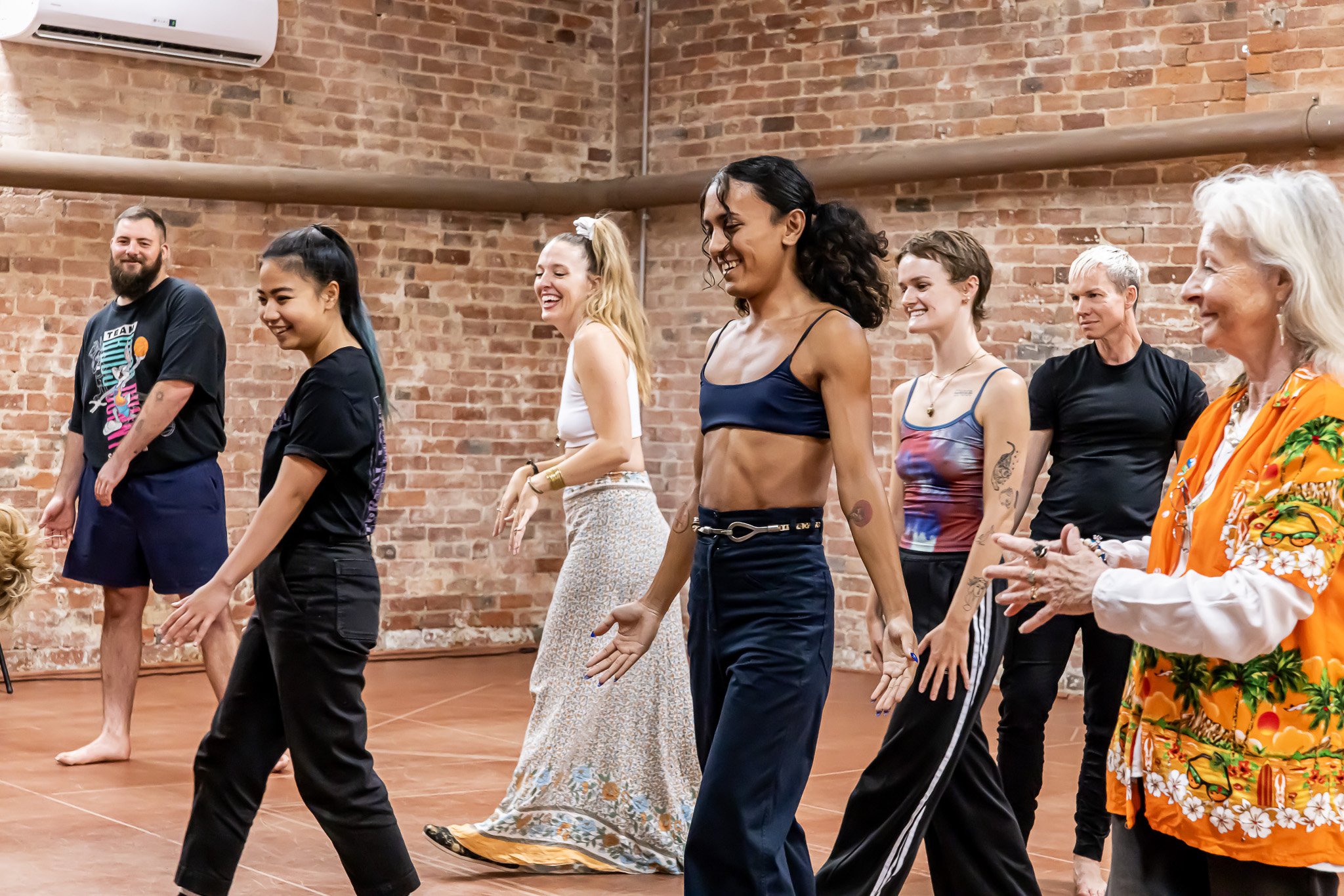
Cost and Registration Details:
$25 waged, $15 unwaged, all attendees must be 18+
For individuals with concerns about affordability or who are unsure whether this type of workshop is for them, we can offer a limited number of free spots per workshop. Anyone who attends is welcome to observe without the pressure of participation (otherwise known as auditing). For more information on auditing or participating in workshops at no charge, please email info@antipodestheatre.com.
Advance booking is essential since each workshop will be limited to 16 people.
Why are the workshops so cheap? This sounds too good to be true.
Margot and Antipodes Theatre Company share a common goal of creating access to high-quality programming for all individuals. The concepts and content within these workshops will appeal to seasoned professionals looking to refresh their creative tool box as well as actors just starting out or who haven't previously had access to similar training programs. This is one of the goals of these workshops - to prove that artists across many skill sets can occupy the same space and expand their capacity for creative expression free from judgment or expectation (and forge new relationships in the process). These workshops are partially subsidised to keep prices low and hopefully encourage both a wide variety of attendees and repeat attendance. While anyone can 'drop in' to these classes at anytime, we hope that the price point encourages people to return often (and creates a new and thriving community for artists to occupy).

What do I need For these workshops:
Wear clothes that will allow you to move freely. You can either wear flexible-soled shoes (like runners), socks or bare feet.
Participants will need to have chosen a piece of text (monologue) and have read the play/screenplay it comes from at least twice. You’ll need 8-10 lines of text to work on. Ideally, you’ll ‘cold learn’ 8-10 lines (i.e. without having made any choices), but alternatively you can bring a copy of your text and be prepared to stick it on the wall so you can refer to it as needed. You can work on the same piece for as many classes as you like, or change it up (but the same condition applies, that you’ve read the source material).

Margot Fenley and Michael Chekhov technique:
Margot has been practicing Chekhov for more than eight years, having studied with more than twenty leading teacher-practitioners in the USA and Europe. In 2018 Margot was invited to the Michael Chekhov Teacher’s Retreat in Groznjan, Craotia and in 2019 spent three months in New York, collaborating with Bethany Caputo (Chekov Studio NYC) to devise a project based on Shakespeare’s Macbeth, which began through long-form solo improvisation and became the four-character play Gruoch. This project earned her first class honours for an MFA (Theatre). As a teacher, she developed and taught the Chekhov-derived approach to acting in musical theatre that became the foundation of the VCA Music Theatre department, which she created and led until 2018. Her skills as a teacher have been recognised by invitations to teach at Tisch School of the Arts, NYU (2019) and the University of Michigan (2022-23). Margot employs Chekhov principles and practices as an actor, a director, a theatre maker and writer, an intimacy professional and of course as a teacher of actors in live performance and screen contexts.

About Margot
“I’m offering this class because it’s what I always felt I needed to help me feel like I was still an actor when I wasn’t working, and to continually develop and expand my practice and potential. I was trained at VCA thirty years ago and recently completed my MFA (Theatre) there. I’ve been a teacher almost as long as I’ve been an actor, and have worked in actor training both in Australia and the USA. Mostly my work is based on Michael Chekhov technique, though I use other practices that are also embodied, imagination-based, intuitive and most of all easy to access and combine with any other method you may already use. Philosophically, I am committed to culturally inclusive spaces, respecting and embracing the differences we each bring from our lived experiences. I am participant-centred which means I start with a plan that I fully expect will change in the room, depending on who is there and what’s happening. Finally, as a trained intimacy professional my work is also consent-forward and trauma-informed, which basically means you don’t have to do anything that doesn’t feel right to you. If there is anything about this class or your experience of it that does not feel accessible or inclusive please do not hesitate to reach out in whatever form feels most comfortable for you.”
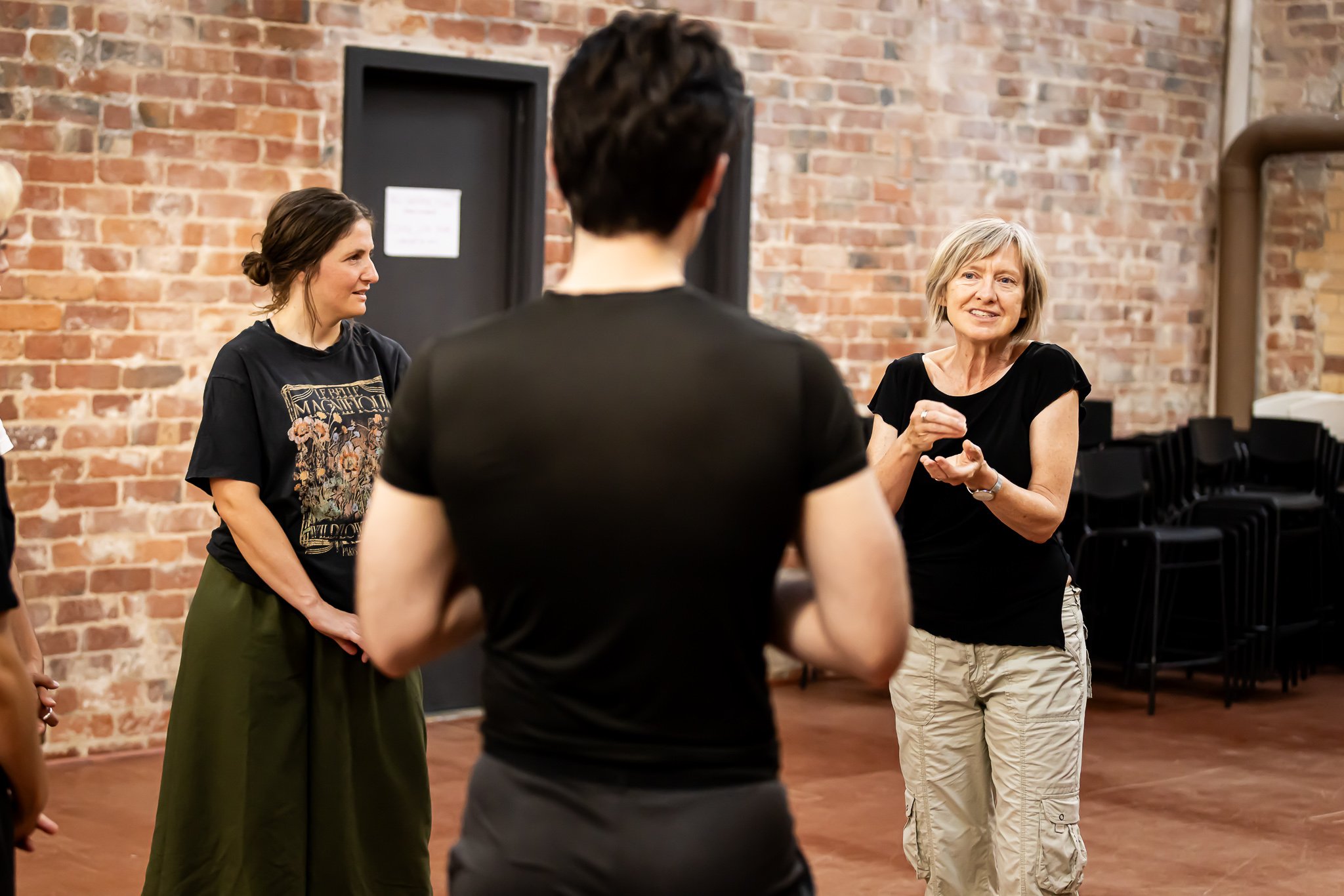





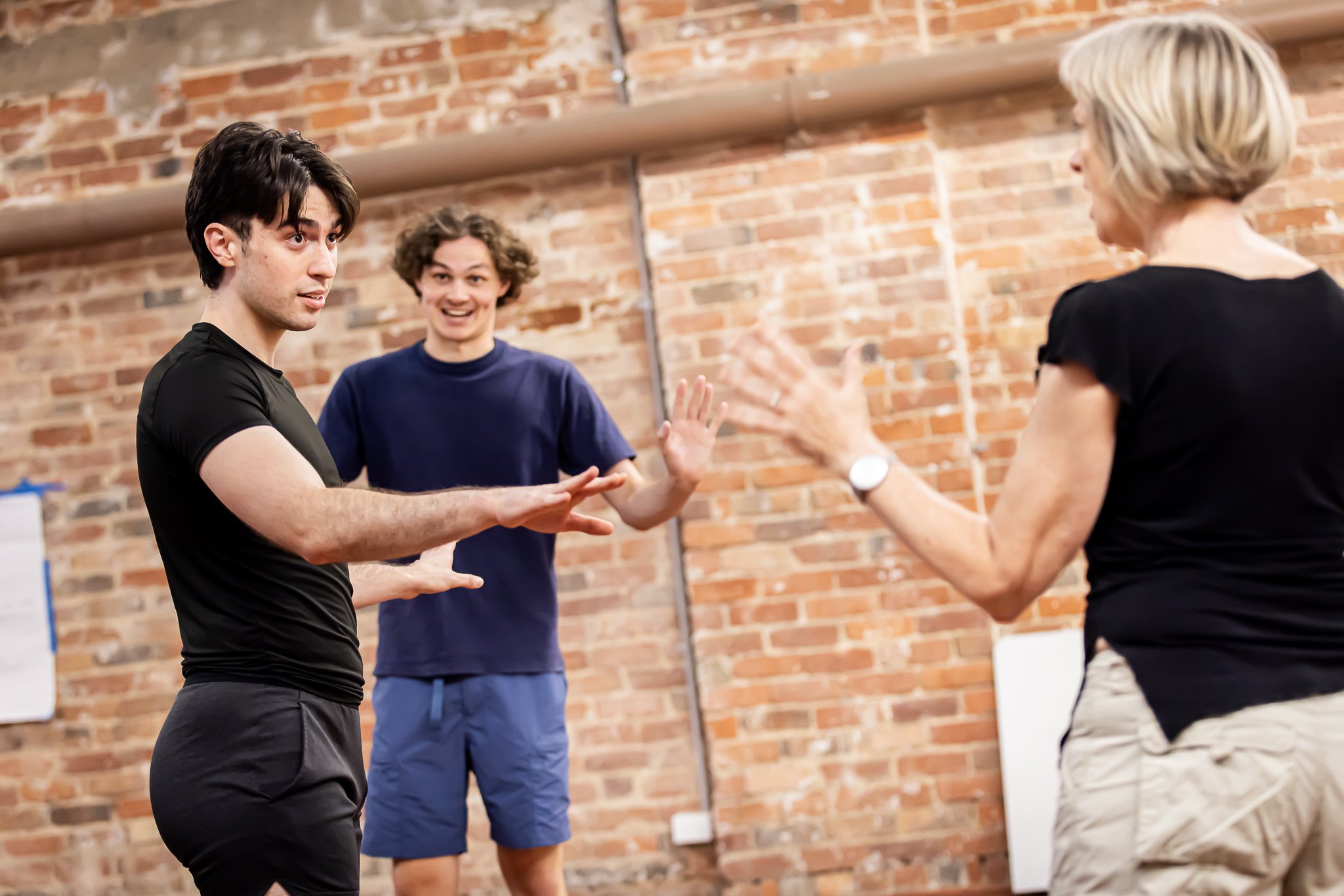

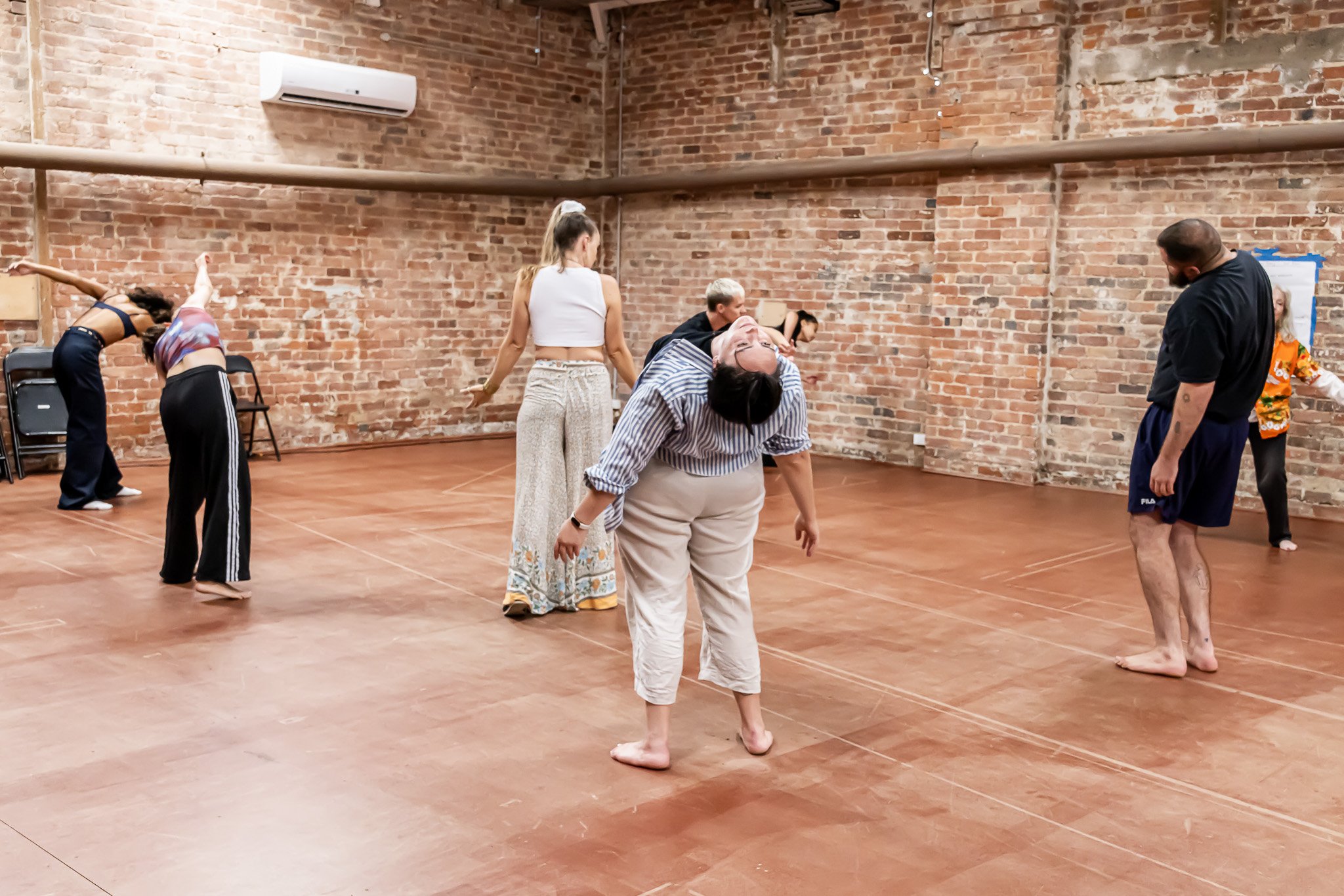







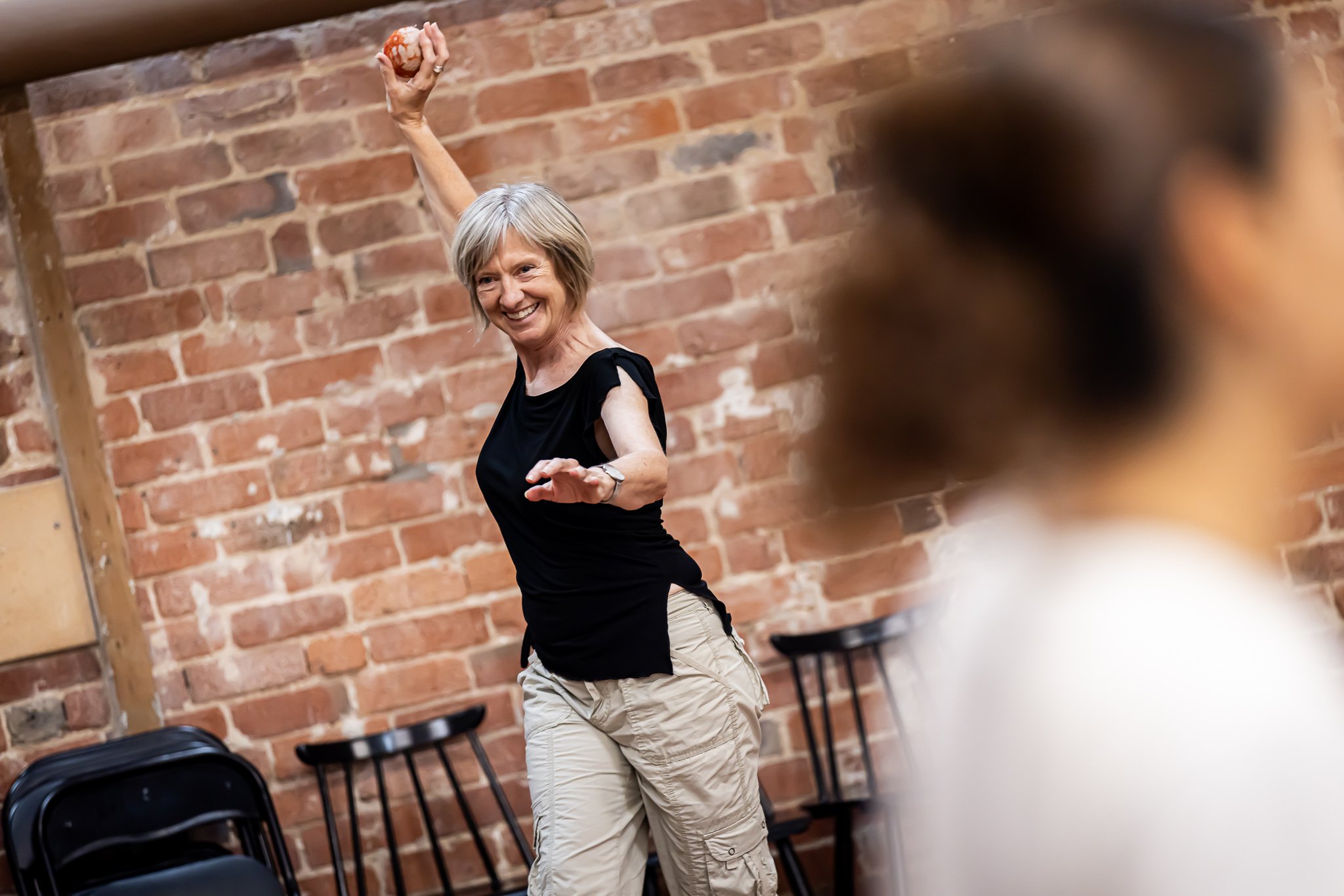










Testimonials
“Margot has the ability to create a space where artistic freedom has room to grow. It’s honestly like taking a class where you not only understand the prospects of working with people but also appreciating what you as an individual can bring into a creative space. ‘Come as you are.’’
- Abu Kebe, actor
“Margot was my first acting teacher, and so much of what she taught me in that time has stayed with me to this day. I owe many a job and performance from what I learned from this exceptional artist and educator.”
- Adam Noviello, actor
“I have always felt so supported and nurtured in Margot’s classes! The safety she creates for us to explore and experiment with new techniques or challenges is unmatched and I’m so grateful to have had her as a mentor.”
- Kristie Nguy, actor
“Margot is not just a teacher, she’s a mentor, friend and truthful voice that has guided me throughout my career thus far. She’s the only teacher I’ve had with me since the beginning of my acting training and I believe that’s because she herself is always evolving as an artist and facilitator.”
- Phoebe Panaretos, actor

Frequently Asked Questions
-
Largely we are exploring a Michael Chekhov-based approach to acting, which connects actors to our physical impulses and embodied knowledge through movement and imagination. A Chekhov approach invites you to explore and play first, and then make choices from the things you discover. It’s what is known as a psychophysical approach, which means that feeling and knowing arise from doing. Whilst Chekhov’s approach can take actors into the depths of any character, it is not personally emotionally invasive, nor does it require analytical work up front. I am also including other practices beyond Chekhov, because I don’t believe there’s only one way to approach acting, but again these are physically- and intuitively-based.
-
No! the beauty of this work is that it partners well with so many other acting approaches. Actors who’ve learned more analytical approaches often find this work releases their creativity, giving them a way to put those approaches into practice on the floor in new ways. Actors who approach their work from a more personal place can find Chekhov helps them to play relationship to other actors and to space, so they don’t get lost inside their own feelings.
-
No. You won’t be asked to get up with someone you’ve never met and randomly improvise. You won’t be asked to do your speech to be critiqued or quizzed. You will always have the option to step out for any part of the work. Everything is optional: you’re given opportunities to challenge yourself, but everything is within your control. Our purpose is to nurture your creativity, not to humiliate, deconstruct, provoke or psychoanalyse you.
-
Every workshop is self-contained. It also isn’t a prescriptive approach, where steps and stages that must be completed in a set order. However, coming every week will achieve a few great things: firstly, you’ll get to learn a series of practices that together can help you build or add to your process; you’ll be practicing some fundamentals every week so those skills will become deeply known to your body and finally – you’ll be ensuring that the classes maintain sufficient numbers for us to continue offering them!
-
Everything we do in the workshops is guided: you don’t need any prior knowledge or preparation. The general map of each workshop is as follows: We start with something that prepares us for the focus of the day’s workshop (this might be a ball game and/or a physical warmup). Then I lead the group through learning or re-exploring a practice – during this time we are moving, playing and experiencing. That is both solo and group work: we often play off each other as we move around the space but again, this is guided, and you can choose to work in a more solo mode if you wish. In the last stage, I offer time to test what we’ve worked on with text: you can use something you’re working on, or one of the speeches I bring with me to class. Sometimes we then pair up at the end to test out that work on a partner, but this is in a group context and you can stay working alone if you prefer. There’s no ‘performance outcome’. We finish up with a chat about any discoveries and close off the workshop.
-
That’s the beauty of this approach: it will meet you where you are. When I’m prepping for each workshop I have two questions in mind: can I lead this if a participant has never done an acting class before, and if I was a participant rather than the workshop leader would I still learn from this, even though I’ve been an actor and acting teacher for thirty years? The material I’m offering fits both those criteria.
-
Sure, if that’s the way you feel, maybe this isn’t for you. But if you have even a tiny little voice that asks – ‘I wonder how good I could actually be?’ or ‘I just feel a bit stale’, this is a space for you to explore your practice, with nothing at risk if you do some bad acting. Nobody is judging you or assessing you. We’re all just here to do the work, and be with other people who want to do the same.
-
Acting, unlike painting or playing an instrument or writing, is hard to do alone: we all know that from self-taping in our bedrooms! And the time between auditions is even tougher: that’s where our skills and confidence can really drop away. The only way to know you are an actor is to do some acting. That’s what these workshops are for: to remind you of your unique creativity, to exercise your talent and to build your toolkit.
-
One reason you mightn’t have trained this way before is that there are very few Michael Chekhov teachers in Australia. My training has come as a result of multiple trips to the USA and to Europe to train with select master teachers, and also at the Michael Chekhov School in Hudson, NY, and with Michael Chekhov Europe. I also spent three months working on a Chekhov-based solo-devised project in New York with Bethany Caputo. I have benefitted from working with so many incredible, creative and generous teaching artists over the past 8 years and I want to share that with artists in Melbourne, without the prohibitive cost of traveling overseas.

PAST WORKSHOPS
FEBRUARY & MARCH 2024
An Introduction to Psychological Gesture: Michael Chekhov Technique
Best-known of Chekhov’s tools, gesture combines the actor’s movement, intuition and imagination to inspire character psychology and action.
For those who find text analysis frustrating or inaccessible, gesture can be a great alternative; and for those who love analysis, it’s a way to bring your book work to life!
This workshop is an introduction to Psychological Gesture; extended exploration will be offered across a number of weeks in May.
APRIL 2024
The Four Elements: Michael Chekhov’s Qualities of Movement
As we move into autumn, April’s drop-in workshops will explore a Chekhov-derived approach to the elements, and the qualities of movement Chekhov connected to them:
Air - flying, Fire - radiating, Water - flowing, Earth - moulding
You’ll explore the qualities, both separately and in combination through a series of imaginative, movement-based activities, and apply them to a character and text of your choosing. Chekhov’s approach to elements work is joyful, accessible, liberating and immediately applicable as a practice.
Please note that these are still drop-in workshops, so you don’t have to attend all four of the qualities of movement/elements workshop if you aren’t available to do so, though obviously if you do, you will benefit from a complete introduction to the practice.
Venue Information:
Antipodes HQ
123A Thistlethwaite St, South Melbourne VIC 3205
For all accessibility enquiries, please contact info@antipodestheatre.com
